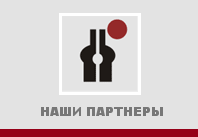The International Institute for
Middle-East and Balkan Studies (IFIMES) in
Ljubljana, Slovenia, regularly analyses events in the Middle East and the
Balkans. IFIMES has analysed events in Serbia after the European Parliament
(EP) at its plenary session held on 15 January 2009 in Strasbourg adopted the
Resolution on Srebrenica recognising July 11 as the day of commemoration of
Srebrenica genocide throughout the EU. The most relevant parts of the
comprehensive analysis "ADOPTION OF RESOLUTION ON
SREBRENICA ACCELERATES SERBIA'S EU ACCESSION PROCESS" are given
below.
SERBIA:
ADOPTION OF RESOLUTION ON
SREBRENICA ACCELERATES SERBIA'S EU ACCESSION PROCESS
The delay and standstill in
Serbia's EU accession are not the consequence of barriers imposed by the EU,
but by the country's unwillingness to co-operate with the Hague Tribunal and
its delays in implementing the promised reforms. Such behaviour of Serbia and
its political leaders has often been criticised by EU Commissioner for
Enlargement Olli Rehn and other members of the
European Commission, the Hague Tribunal chief prosecutor Serge
Brammertz and even European Parliament's Rapporteur for Serbia Jelko Kacin who advocates Serbia's accession to the EU and
believes Serbia will be the central state and the engine of development for the
West Balkans. " "...As the largest country and economy in the region
Serbia has the greatest potential and administrative capacity as well as a
clear advantage in accelerating or slowing down EU accession process in the
wider region of south-east Europe. Serbia has not had its final say yet and it
can do much more for itself and for the region...," Kacin said.
Serbia has to resume Stabilisation and Association
Agreement (SAA) as soon as possible while taking into account commissioner
Rehn's advice not to submit its application for EU membership this year. In
spite of clear warnings sent by the EU, Serbian Foreign Minister Vuk Jeremić insists on applying for membership already
during the Czech EU presidency. However, the apprehension of Ratko Mladić and Goran Hadžić
remain the condition for Serbia's EU accession.
The IFIMES International Institute is of the opinion
that it is too early and unrealistic for Serbia to consider submitting
application for EU membership this year. Instead it should devote all its
efforts to achieve the abolition of the visa regime. The country's one-sided
submission of application and lack of positive reaction by the EU will create
further frustration in the Serbian public which will be led to believe that
Europe has slowed down its EU accession. This in fact represents wilful
political manipulation carried out by Serbia's political leaders, which will
harm Serbia and its reputation and jeopardise the EU's role in the process of
democratisation and promotion of comprehensive development of the country.
IT IS
SERBIA'S TURN NOW
Overcoming the Netherlands's
blocking of the Stabilisation and Association Agreement with Serbia requires a
different and flexible response and a change in Serbia's behaviour in order to
improve its credit rating. Unless Ratko Mladić is arrested, there is only
one way to persuade the Netherlands and the Hague Chief Prosecutor to continue
co-operation with Serbia - with the adoption of the Resolution on Srebrenica in
the National Assembly of the Republic of Serbia.
The decision of the Serbian National Assembly to start
commemorating July 11 as the day of mourning for the victims of genocide in
Srebrenica would send a clear signal to the EU, and especially to the
Netherlands and the Hague Tribunal Chief Prosecutor Brammertz, as they would
not be able to ignore the act which would clearly increase reputation and
credibility of Serbia. This would lead to a fast deblocking and at least
bilateral implementation of trade agreement if not of the complete
Stabilisation and Association Agreement.
IMPORTANT
ROLE OF NON-GOVERNMENT ORGANISATIONS
Both Serbia and the EU
should pay attention to the initiative of a group of Serbian NGOs and their
open letter to Serbia's President Boris Tadić
calling the National Assembly to adopt a resolution on Srebrenica on the basis
of the Resolution adopted by the European Parliament on 15 January 2009 and to
start commemorating July 11 as the day of mourning for the victims of genocide
in Srebrenica.
The NGO initiative is of immense
importance as it paves a different way for Serbia's EU integration by adopting
the European value system and recognising historical facts. The appropriate
respect of international law and court decisions will enable the country to
eliminate negative stereotypes of Serbia and limit the liability for war crimes
to the responsible individuals. This would make an important contribution to
reconciliation in the region and a decisive step towards deblocking the SAA and
accelerating Serbia's EU accession process.
However, the country also needs a clear incentive from
abroad which would make it easier for Belgrade to realise that the confirmation
of the Resolution on Srebrenica would facilitate and accelerate the positive assessment
of Serbia's efforts and progress in the eyes of Chief Prosecutor Brammertz and
the Dutch government. On this basis eventual apprehension and extradition of
Ratko Mladić would be attributed a different meaning and much greater
gravity. That would be the fastest and most successful way to start the SAA
ratification process in the European Parliament and EU member states.
The European Union, and especially Serbia, should not
forget the important message from the proposal for the resolution on Srebrenica
submitted by EP Vice-President Diana Wallis and Slovenian MEP Jelko Kacin (Alliance of Liberals and
Democrats for Europe) which was also stated during the plenary discussion in
the European Parliament: "This resolution is
not intended for the past. Although it also speaks about the dead, it is
intended for those who still live and for their better future."
Ljubljana,
16 February 2009
International Institute for Middle-East
and Balkan Studies (IFIMES) - Ljubljana
Directors:
Bakhtyar Aljaf
Zijad Bećirović, M.Sc.











